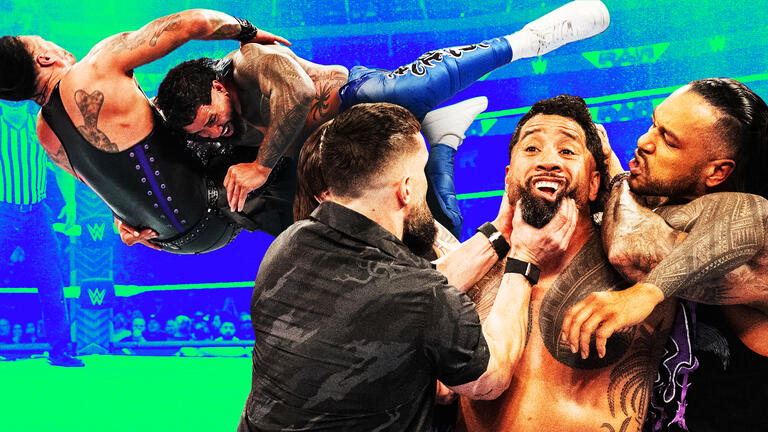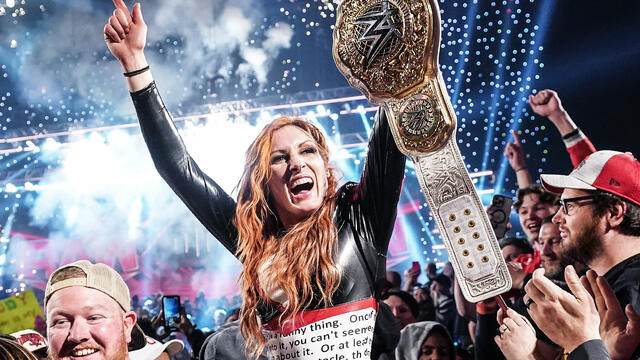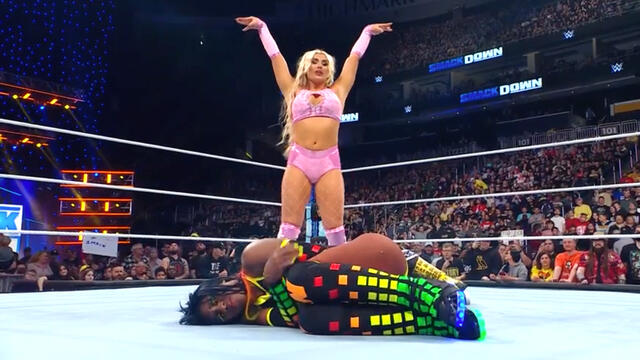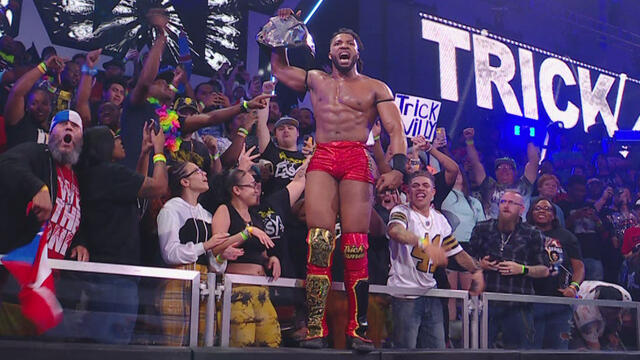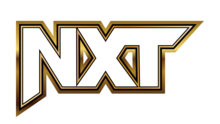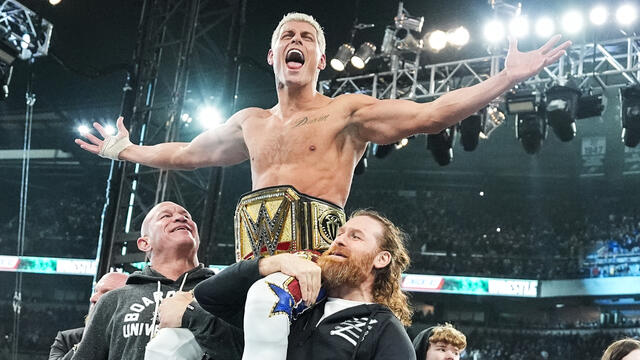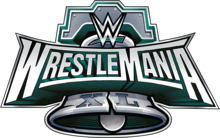
How the Cruiserweight Title changed the game

Competitors like Eddie Guerrero, Chris Jericho, Rey Mysterio and Dean Malenko first made their marks as WCW Cruiserweight Champions. From there, they revolutionized sports-entertainment and our perceptions of sports-entertainers. This is their story.
Sixteen years ago in the Japanese metropolis of Nagoya, a respected Yamaguchi City native by the name of Shinjiro Otani won a tournament to be declared the first WCW Cruiserweight Champion. A relative unknown stateside, Otani quietly began what would become a revolution in sports-entertainment.
Over the course of the next three years, the championship, defended exclusively by competitors weighing 215 lbs. or less, would pass through the possession of Eddie Guerrero, Dean Malenko, Rey Mysterio and Chris Jericho — four of the most talented young wrestlers in the world in the late mid-90s. Of this group, three would become WWE Champions, while one would find a key role as a behind-the-scenes player for WWE.
Their insights and output would shape the future of sports-entertainment, but in 1997, all that was expected of these competitors was an exciting 10 minutes on WCW’s weekly shows and monthly pay-per-view events. ( PHOTOS | WATCH)
“The pay-per-views would always open with the cruiserweights,” WWE Superstar Tyson Kidd remembered. “I started to realize they were the ones setting the tone for the whole night. Of course, The nWo would be the main event.”
At the height of the heated “Monday Night Wars,” Hulk Hogan and his New World Order cronies were getting much of the credit for the record television ratings of WCW’s flagship program, Nitro. And they deserved it. But fans tuning into TNT to see exciting matches weren’t getting it from guys like The Disciple and Scott Norton, who spent the majority of their time mugging for the cameras. The show needed innovative, entertaining bouts to hold viewer attention, and WCW President Eric Bischoff was sharp enough to realize this.
Through the crumbling of WCW and his own shameless self-promotion, Bischoff has become somewhat of a sports-entertainment punchline. It’s not a totally unfair assessment of the guy who once challenged Mr. McMahon to a karate fight live on pay-per-view, but the truth is the slick salesman had more than a few good ideas hiding beneath his Ken doll hair and, more importantly, had the nerve to pull them off. So, with Ted Turner’s blank checks in his pocket, Bischoff set out to amass the single greatest lightweight roster in sports-entertainment history.
By 1996, when the title debuted, the WCW locker room was overflowing with top international talent like one of those old kung fu movies from the ’70s where an eccentric billionaire summons the globe’s greatest competitors to his island compound to fight for his enjoyment. There was Ultimo Dragon from Japan, Alex Wright from Germany, Juventud Guerrera from Mexico and even Billy Kidman from Allentown, Pa.
And then there were the four men who would make up the cornerstones of the division — Jericho, Malenko, Guerrero and Mysterio. Four of the best wrestlers on the planet at the time, the men came from different parts of North America, but their careers followed similar trajectories. Sons of noted grapplers, Malenko and Guerrero were trained by their fathers before honing their skills in the rough rings of Japan. Jericho got his start in Canada before bouncing around the mat everywhere from Tennessee to Mexico, where he became a teen heartthrob under the name “Corazon de Leon.” Mysterio was only a teenager when he took on his uncle’s persona of the “King of Mystery.” By the time he arrived in WCW, though, he was rightly considered the top high flyer around.
For the next three years, these men stole the show every night as they traded the WCW Cruiserweight Championship back and forth in bouts that highlighted Mexican lucha libre, Japanese strong style and Hart-style submission techniques all at once. These men were changing sports-entertainment in front of everyone’s eyes. The only problem was few could see it.
The prevailing criticism of cruiserweights — usually perpetrated by the lugs in the main event — was that they were vanilla. They could fly, but they couldn’t talk. They knew holds, but they had no charisma. Of course, considering that two of the most charismatic men in sports-entertainment history in Jericho and Guerrero were key parts of the division, this is clearly untrue. It would take time for this realization to come to light, however. First, the cruiserweights would have to leave WCW, which they began to do en masse.
This exodus grew out of the fact that they were considered cruiserweights and nothing more. In 1997, the idea that Jericho or Guerrero would ever be world champion was absurd. Mysterio? Forget it. The players at WCW had been smart enough to feature this talent pool, but they weren’t wise enough to see they had the future in front of them. To them, the WCW Cruiserweight Title was something of a novelty, when in truth, it was a gateway title.
The most obvious example of this kind of title was the Intercontinental Championship — specifically during the late ’80s and early ’90s when it was held by future WWE Hall of Famers like Ricky Steamboat, Mr. Perfect and Bret Hart, just to name a few. With that championship, WWE fans knew they were watching a talented Superstar who would one day be in the main event. With the WCW Cruiserweight Title, it was less obvious.
It would take the departures of Jericho, Malenko, Guerrero and Mysterio for this to become apparent.
Y2J made the move first, debuting in WWE in 1999 before becoming the first-ever Undisputed Champion in 2001. Malenko and Guerrero would arrive together as members of The Radicalz in 2000. Malenko soon retired, but found an integral backstage role as a producer for WWE. Latino Heat thrived as one of WWE’s most beloved Superstars, winning the WWE Title in 2004 before dying too young at the age of 38 in 2005. Rey was the last to arrive, blasting into WWE in 2002, one year after WCW went out of business. He would eventually become the smallest man to hold both the WWE and World Championships.
Meanwhile in WCW, the Cruiserweight Title became a prop in a bad comedy act as champions soon included a man and a woman holding the title simultaneously and a heavyset man in a black cowboy hat, who was doing a cruel impersonation of Jim Ross with Bell’s palsy.
“It was a slap in the face,” former champion Billy Kidman told WWE.com. “It brought nothing to anything. [Oklahoma] wasn’t entertaining and he certainly wasn’t a cruiserweight.
It was a disappointing end to a title that first showcased some of sports-entertainment’s most exciting stars, but the Cruiserweight Championship's legacy endures through the smaller wrestlers like Daniel Bryan who dominant the main event scene and the younger grapplers who were inspired to climb to the top rope.
“When I was 15, I saw Rey vs. Psychosis and the match blew me away,” Tyson Kidd told WWE.com. “Honestly, I didn’t care about The nWo anymore. It absolutely changed the way I looked at wrestling.”
Witness some of the best WCW Cruiserweight Title bouts for free with WWE Greatest Matches!
WCW Halloween Havoc 1997: Rey Mysterio vs. Eddie Guerrero
WCW Clash of The Champions XXXIII: Rey Mysterio vs. Dean Malenko
WCW SuperBrawl VII: Syxx vs. Dean Malenko
WWE Shows Latest Results
SmackDown results, April 19, 2024: Tiffany Stratton introduces Bayley and Naomi to Tiffy Time with a sneak attack
Full ResultsNXT Spring Breakin' 2024 Week One results: Trick Williams slays The Mad Dragon to become NXT Champion
Full Results



